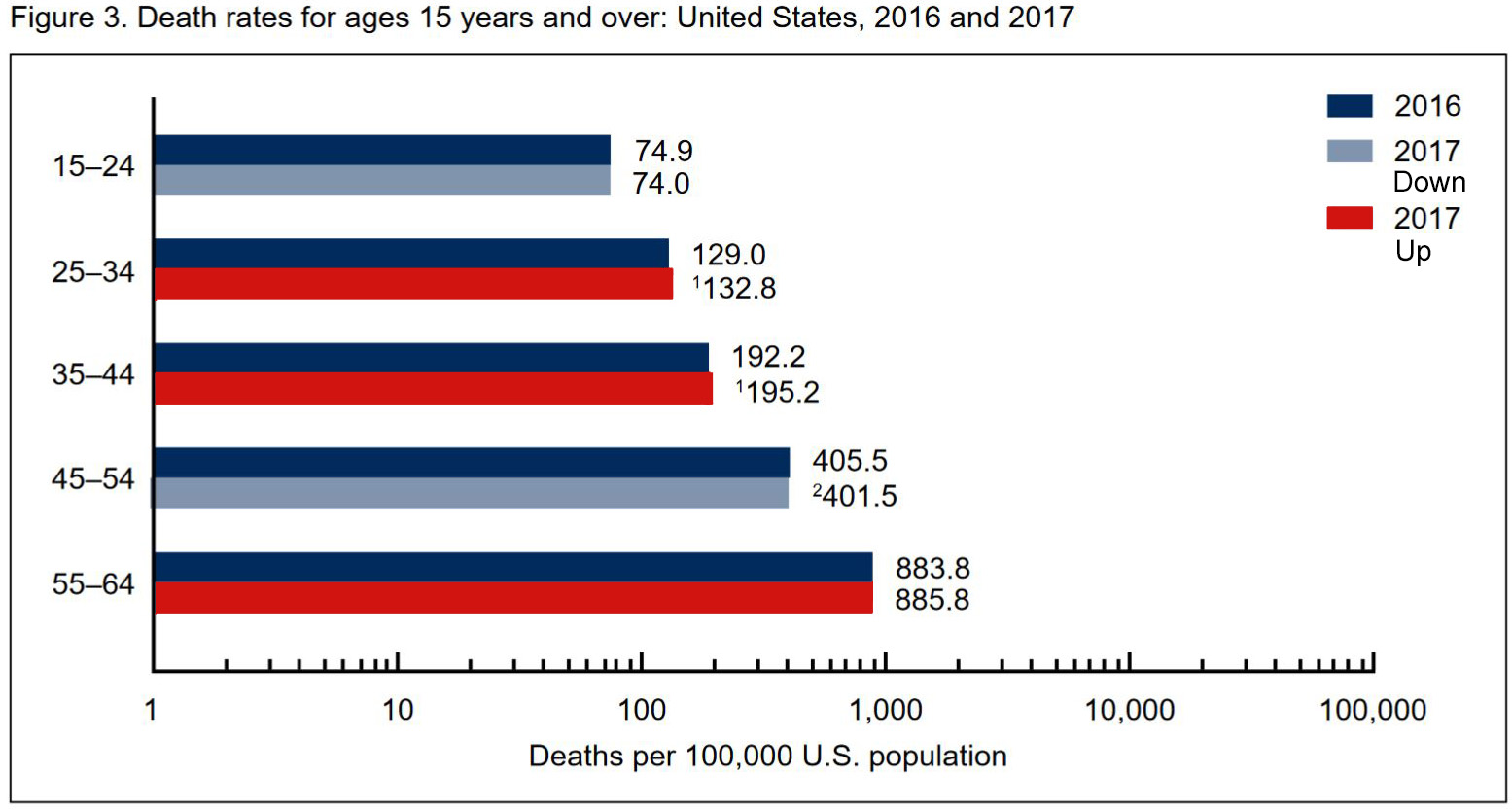The CDC announced today that life expectancy at birth declined once again in 2017. But what does this mean precisely?
Life expectancy is estimated using something called a life table, which shows the death rate for each age cohort in the previous year. That is, it shows the probability of dying between 0 and 1, between 1 and 2, and so forth. Add up all those probabilities and then apply some arithmetic, and you get life expectancy.
So if you want to see the raw data, you want a life table. And since life expectancy at age 65 was up, we’re only interested in ages 0-64. Here it is for 2017:

This isn’t a complete life table, but it gives us a sense of what’s going on: Nearly all the increase is between ages 25-44. (Statistically, the mortality rate among 55-64 year olds is basically flat.) This increase is almost entirely limited to whites: the mortality rate increased 0.63 percent among white males and 0.87 percent among white females.
Put this all together and the aggregate life expectancy for a newborn American baby went down from 78.7 years to 78.6 years. The current best theory to explain this remains the increase in “deaths of despair”—suicide, alcohol abuse, and drug overdoses—observed primarily among rural whites.
But don’t worry: if you’re reading this you’re probably college educated and have a fairly high income. Your life expectancy is around 85 or so, compared to about 77 for the poor. This is the biggest demographic disparity in life expectancy. It easily overwhelms the gaps from gender, race, geography, and everything else.


















